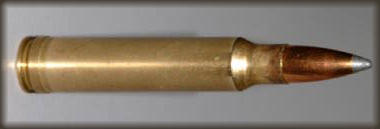

 The Accurate Reloading Forums
The Accurate Reloading Forums  THE ACCURATE RELOADING.COM FORUMS
THE ACCURATE RELOADING.COM FORUMS  Rifles
Rifles  Medium Bore Rifles
Medium Bore Rifles  I Have Started Testing Different Size Bullets In The 308 Winchester
I Have Started Testing Different Size Bullets In The 308 WinchesterGo  | New  | Find  | Notify  | Tools  | Reply  |  |
| Administrator |
I am going to make this test more comprehensive than my test on the 375 H&H. Using one bullet - our 157 grain Walterhog bullet, I am going to make it in various sizes, and try these in 3 different rifles. Rifles are a Sako A7, a Kimber 8400 Patrol Tactical, and a Robler Titan 6. The rifles are varied enough to give us an idea of what effect different diameter bullets have on accuracy. I am trying to make this test as consistent as possible. I have taken 150 RWS Match cases, bullets are made to precise diameters, and each 5 shot in a group are weighed to the same weight. Primers are Federal 210M. So far I have shot the Sako A7 using 0.308, 0.307, 0.306, 0.305 bullets. Dies are RCBS full length and seating. This worked up to the 0.306 bullets. The 0.305 bullets will not seat in the cases sized in a normal full length die. I had to use a Redding button die to the size the necks down. So far there are no surprises going down 0.003". | ||
|
| Administrator |
Shot the Robler Titan 6, 308, 307, 306 and 305. Very surprisingly good results so far. Load is 46 grains of VARGET. Will shoot the Kimber next, and will post the results before I start on the 304 and down. Once I reach a point where the results shaw major difference, I will start on the larger diameters. | |||
|
| Administrator |
Results so far. All loads are 46 grains of VARGET, 5 shot groups at 100 yards. SAKO A7 26 inch barrel. 0.308 1.015, 0.962, 0.517, 0.822, 587. average 0.7806 0.307 0.842 1.331 0.901, 0.678, 0.841 average 0.9186 0.306 0.832, 0.619, 0.497, 0.657, 0.560 average 0.6330. 0.305 1.656, 0.794, 0.808, 0.566, 0.789 average 0.9226 ROBLER TITAN 6, 28 inch barrel 0.308 0.785, 0.941, 0.650, 0.723, 0.568, average 0.7334 0.307 0.566, 0.475, 0.453, 0.600, 0.660 average 0.5510 0.306 0.610, 0.638, 0.664, 0.375, 0.842, average 0.6258 0.305 0.780, 0.281, 0.662, 0.646, 0.357 average 0.5452 KIMBER 8400 PATROL TACTICAL 0.308 0.545, 0.492, 0.490, 0.717, 0.247, average 0.4982 0.307 0.617, 0.380, 0.555, 0.580, 0.382 average 0.5028 | |||
|
| One of Us |
Interesting. I assume the difference in each rifles preferred bullet diameter is do to the variances in their actual bore dimensions? Roger ___________________________ I'm a trophy hunter - until something better comes along. *we band of 45-70ers* | |||
|
| Administrator |
The Sako A7 bore is 0.299" Robler Titan 6 is 0.299" Kimber 8400 Patrol Tactical is 0.300" | |||
|
| Administrator |
| |||
|
| Administrator |
Just shot 0.303 diameter bullets in the Robler. I am scratching my head, as the groups are ridiculously good. Have not measured any yet, but 0.005” smaller!! | |||
|
| One of Us |
That's a neat test, thanks for sharing your results! I would've guessed that you would see a bigger difference. | |||
|
| new member |
Thanks for putting that up Saeed, very interesting. These groups with the .303 bullets, perhaps you had something different for breakfast. | |||
|
| Administrator |
May be I did not explain it properly. The 0.303 are 0.005" smaller than standard 0.308. I can see where it might have been mistakenly understood as being 0.005"smaller group! | |||
|
| Administrator |
This is the target for the Kimber, with 0.303 bullets. Black rifle is the Kimber 8400 PATROL TACTICAL Green is the SAKO A7 Laminated wood is the ROBLER TITAN 6. 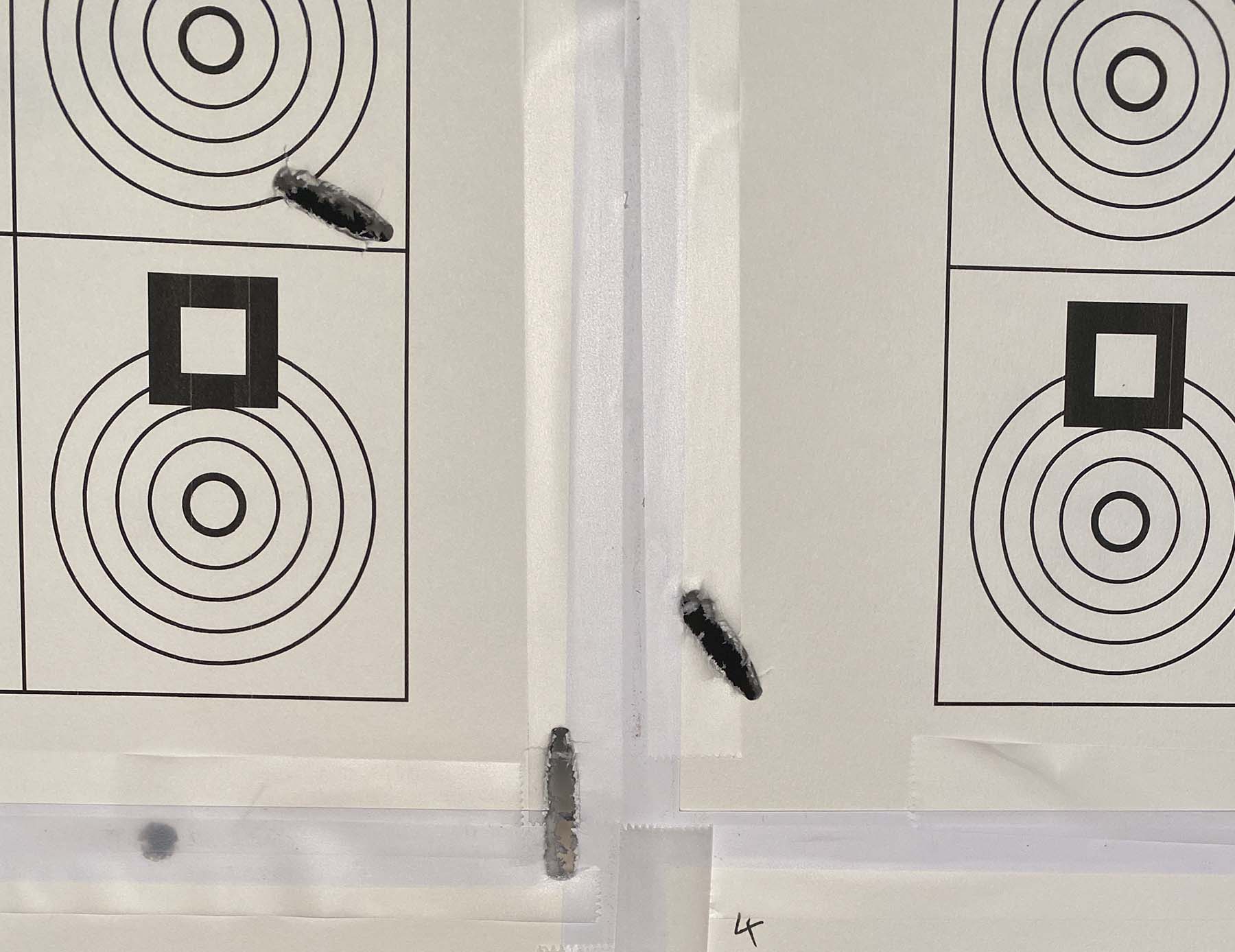 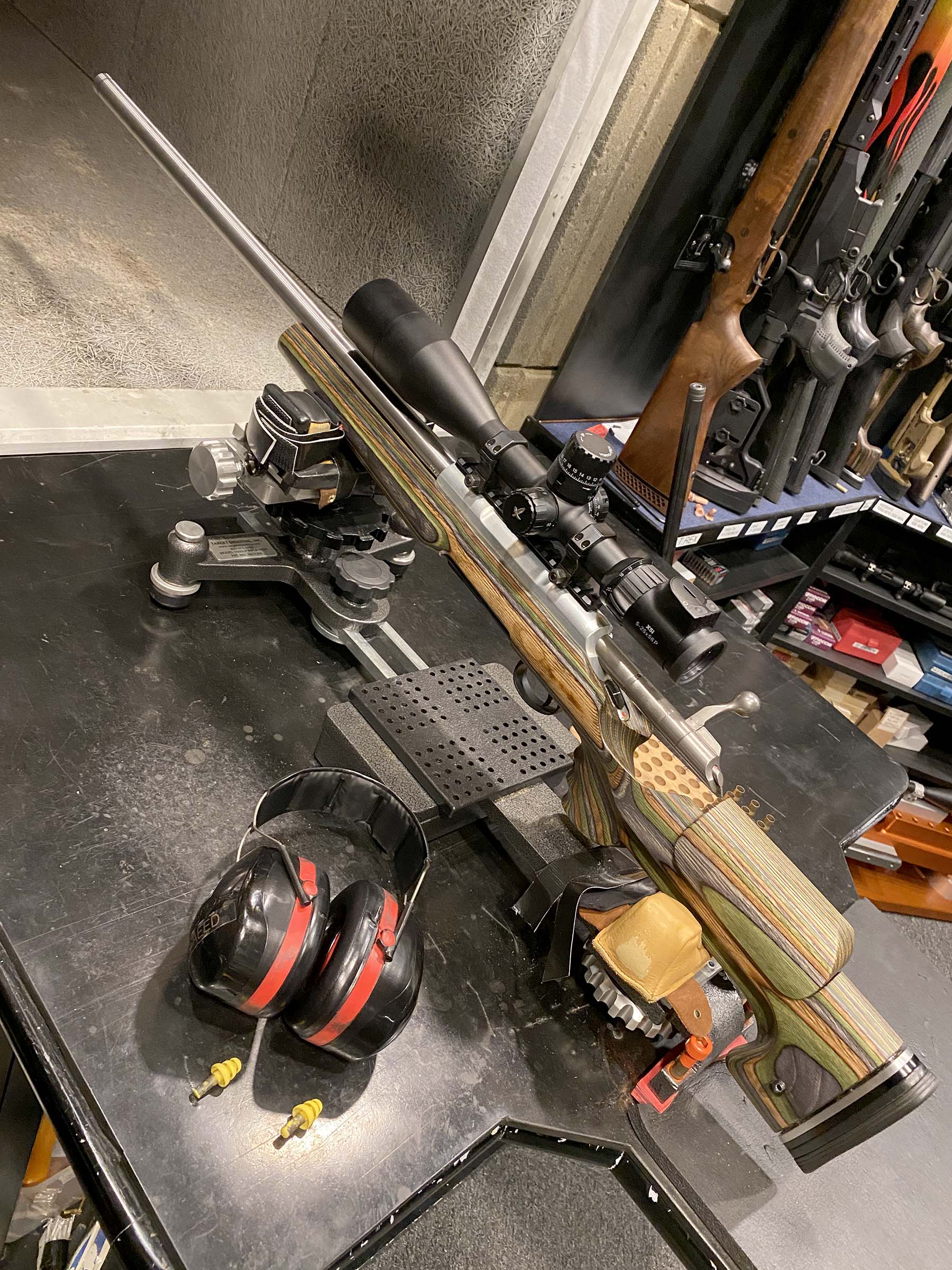 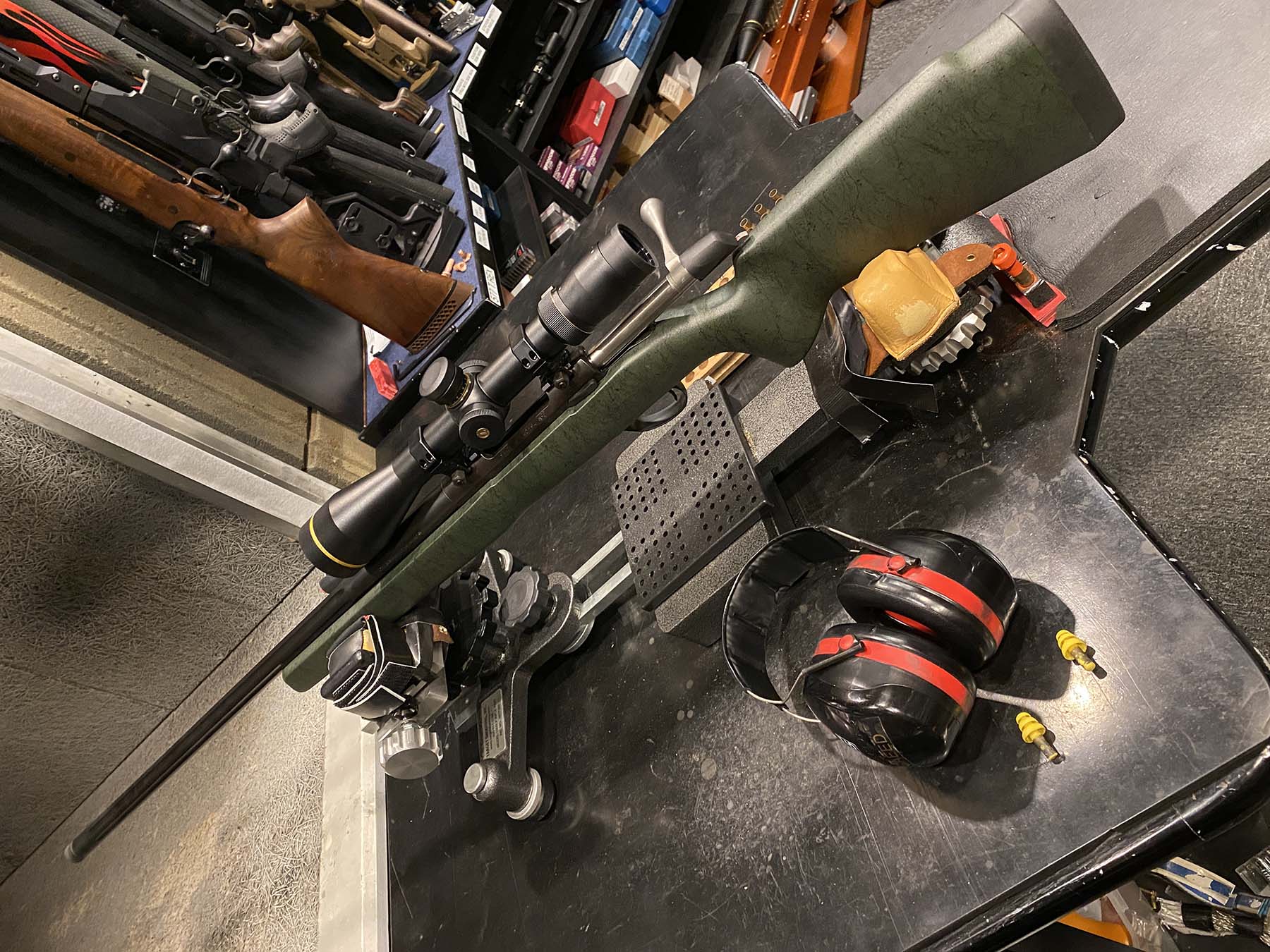 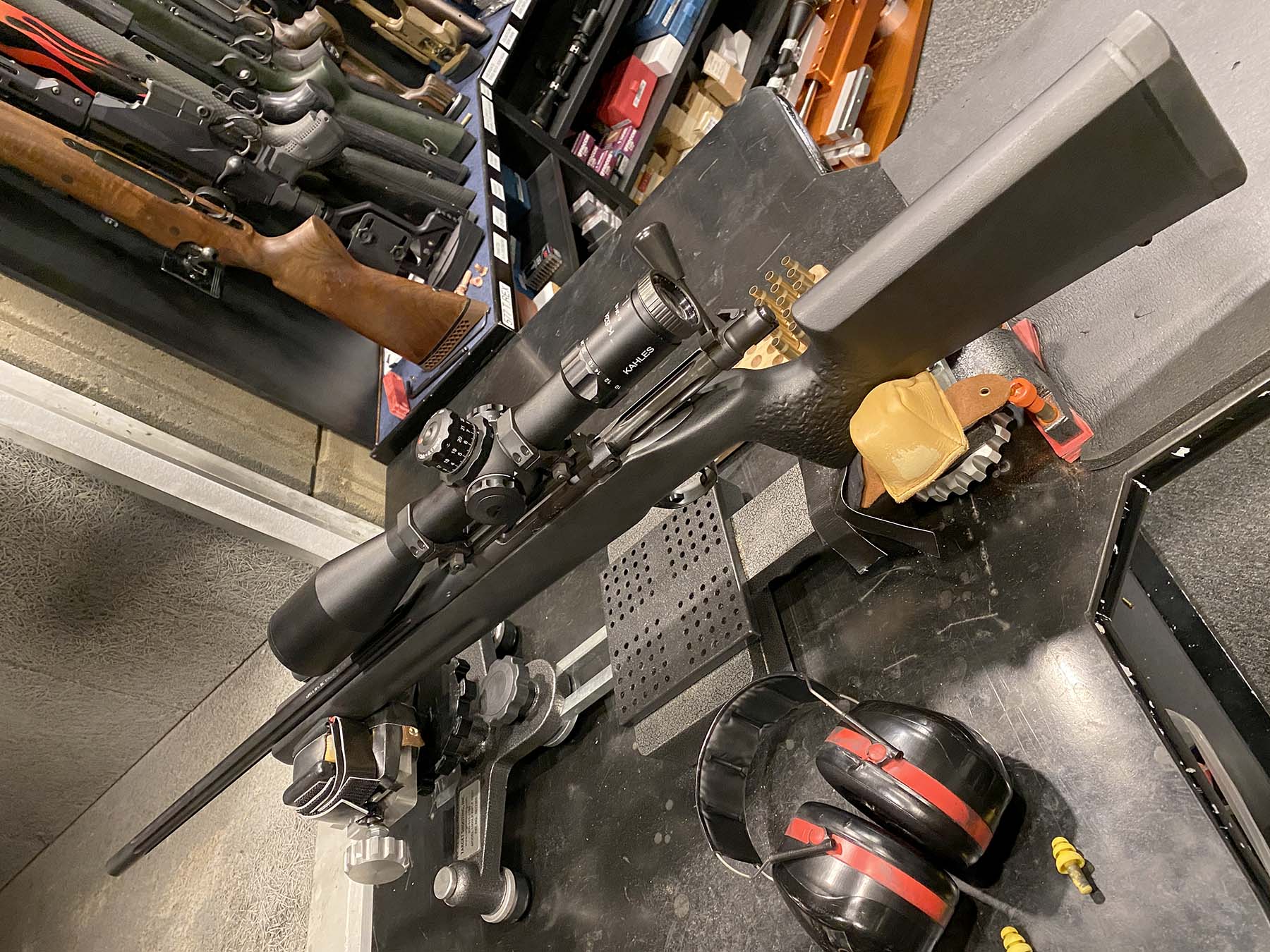 | |||
|
| Administrator |
0.303 shot in both Sako and Robler. Not in the Kimber. 0.302 did not even hit the target board in any of them. Starting on the larger bullets now. | |||
|
| Administrator |
Maximum diameter bullets that would chamber in these rifles is 0.311. 0.312 will not. Next I will shoots groups with different size bullets. A group of 5 shots, each bullet is a different diameter. Then I will repeat the test using brass bullets. | |||
|
| Administrator |
All done with copper bullets. I have shot 2, 5-shot groups in each rifle with bullets of varying diameters. I am making brass bullets now, and will repeat it. I was given a bottle of BORE TECH CU+2 COPPER REMOVER, and used it to clean these three rifles. I must say I am very impressed. It got the bore free of copper very quickly. | |||
|
| one of us |
Fascinating, and hard to explain! Saeed, a side study might be the degree of gas cutting that the smaller diameters allow, although it might be the barrel throats that suffer more than the bullets as those monometals are tough. There is hope, even when your brain tells you there isn’t. – John Green, author | |||
|
| One of Us |
This is very interesting. I know cast bullet diameters have a great effect on performance. Accuracy as well as leading. One thing I was wondering, does the bullet diameter effect the pressure or velocity of these loads? Leo The only way to know if you can do a thing is to do it. | |||
|
| Administrator |
This concludes this test with copper bullets. The beautifully formed keyholes are from small bullets that will not stabilize. They were landing all over the place, except where they were supposed to. I am repeating the test with brass bullets. Have no idea what we might get. 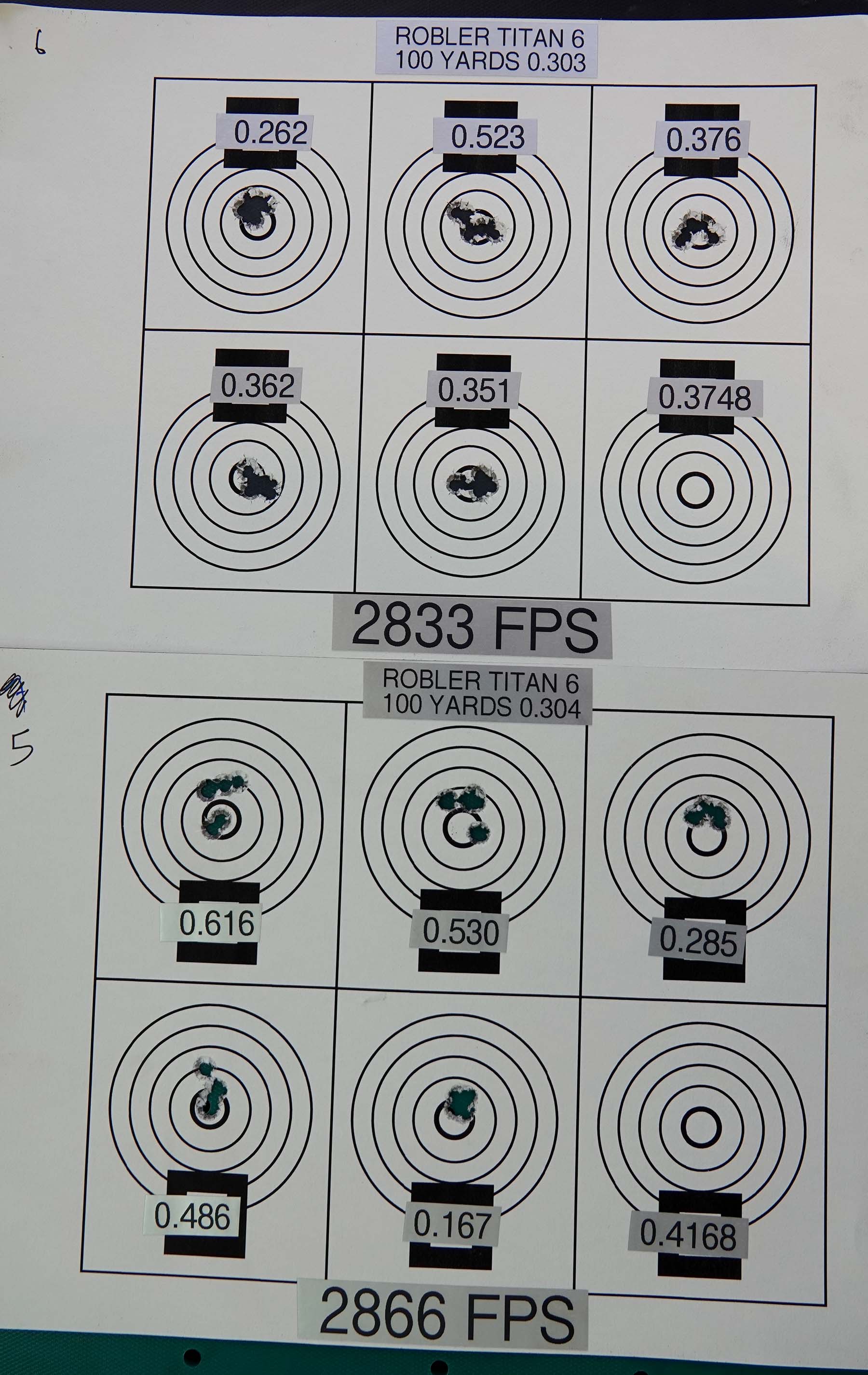 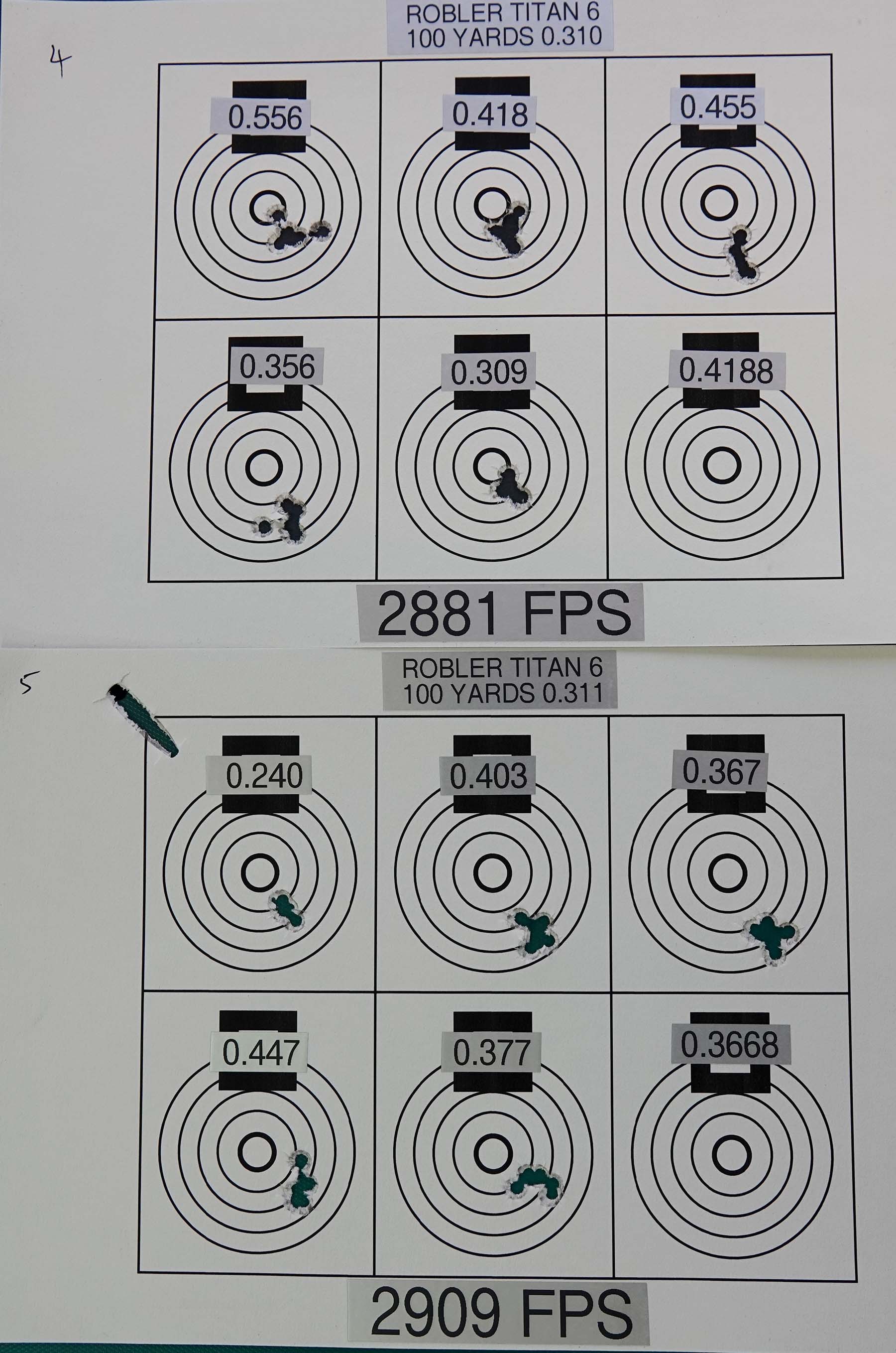 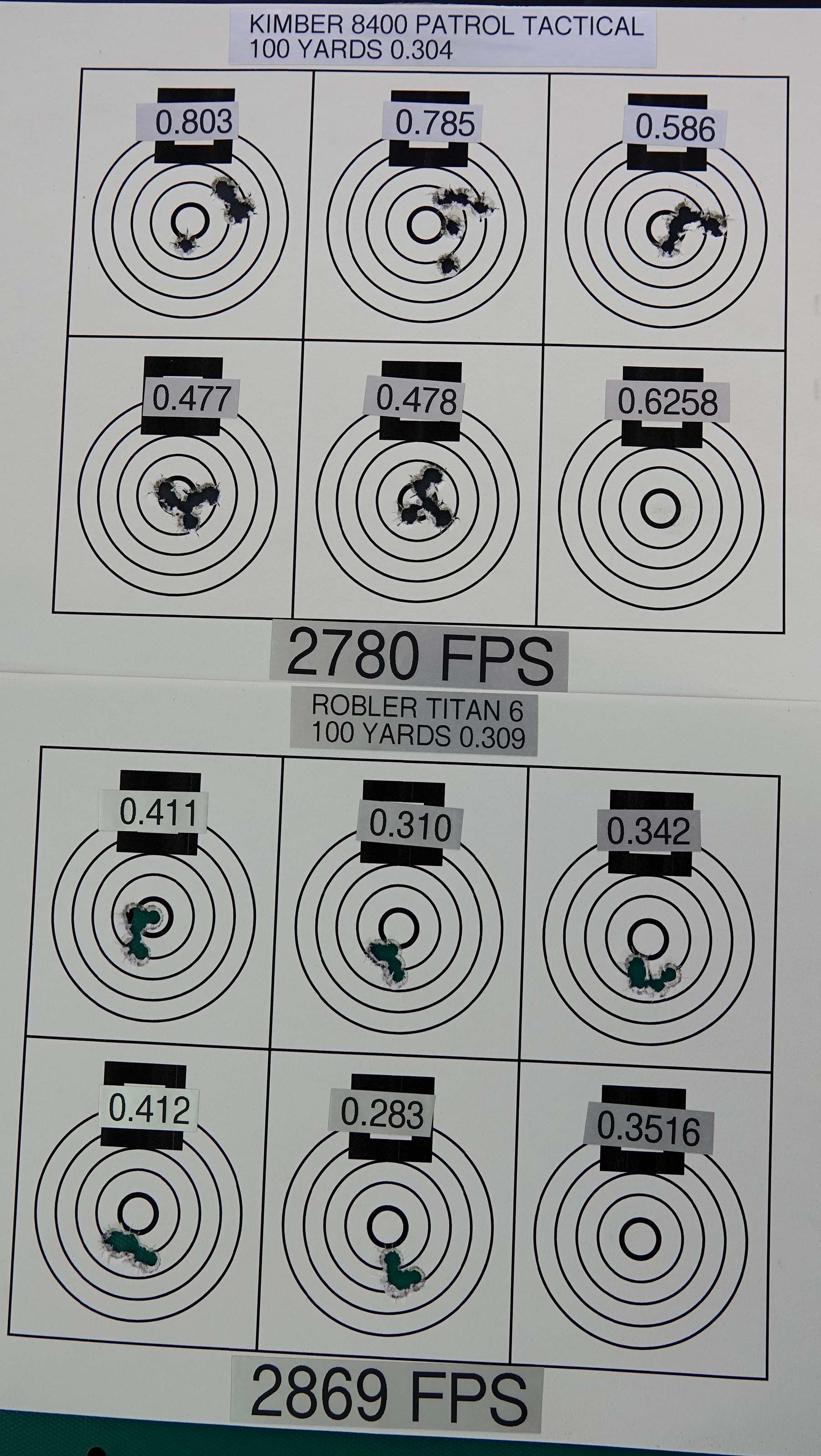 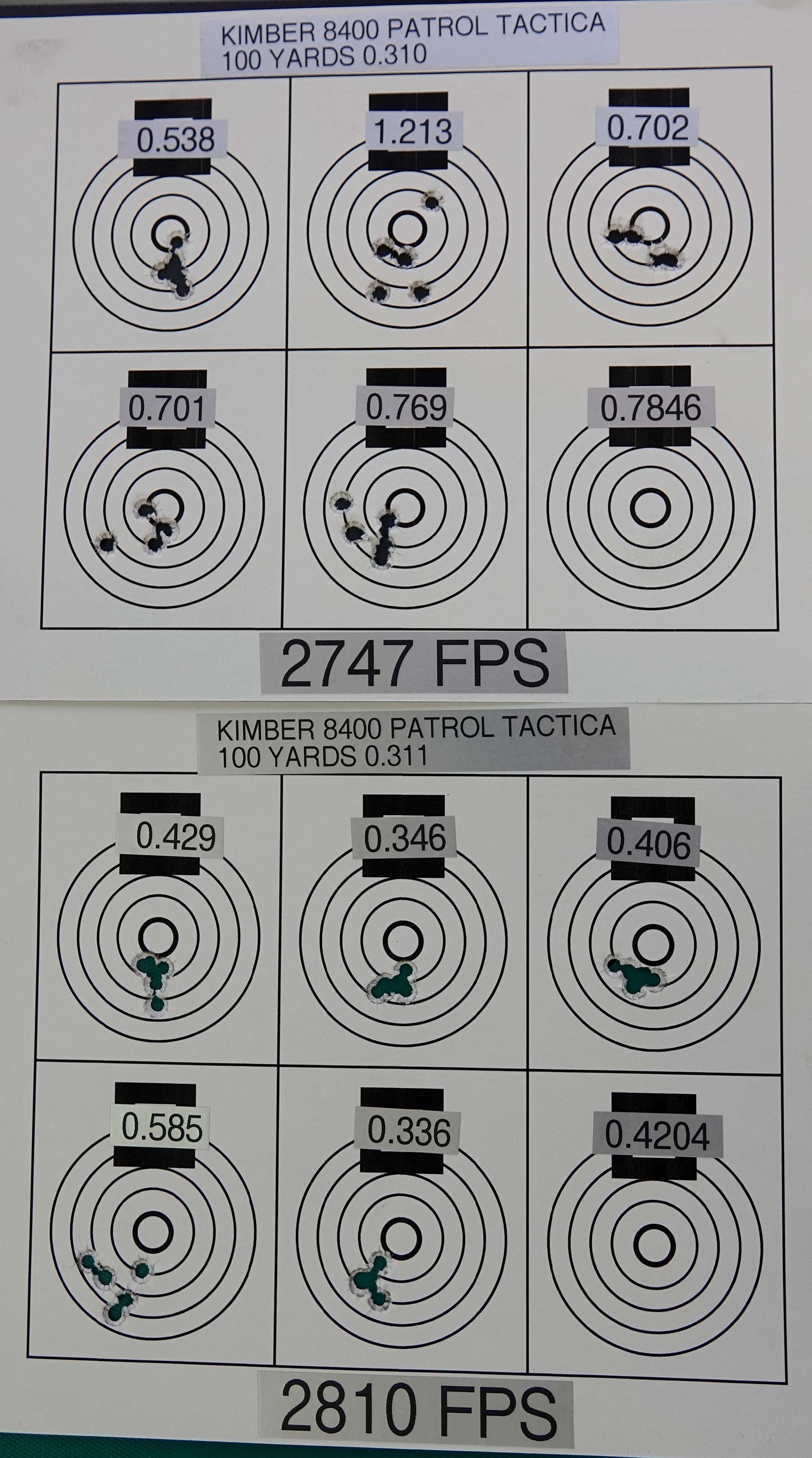 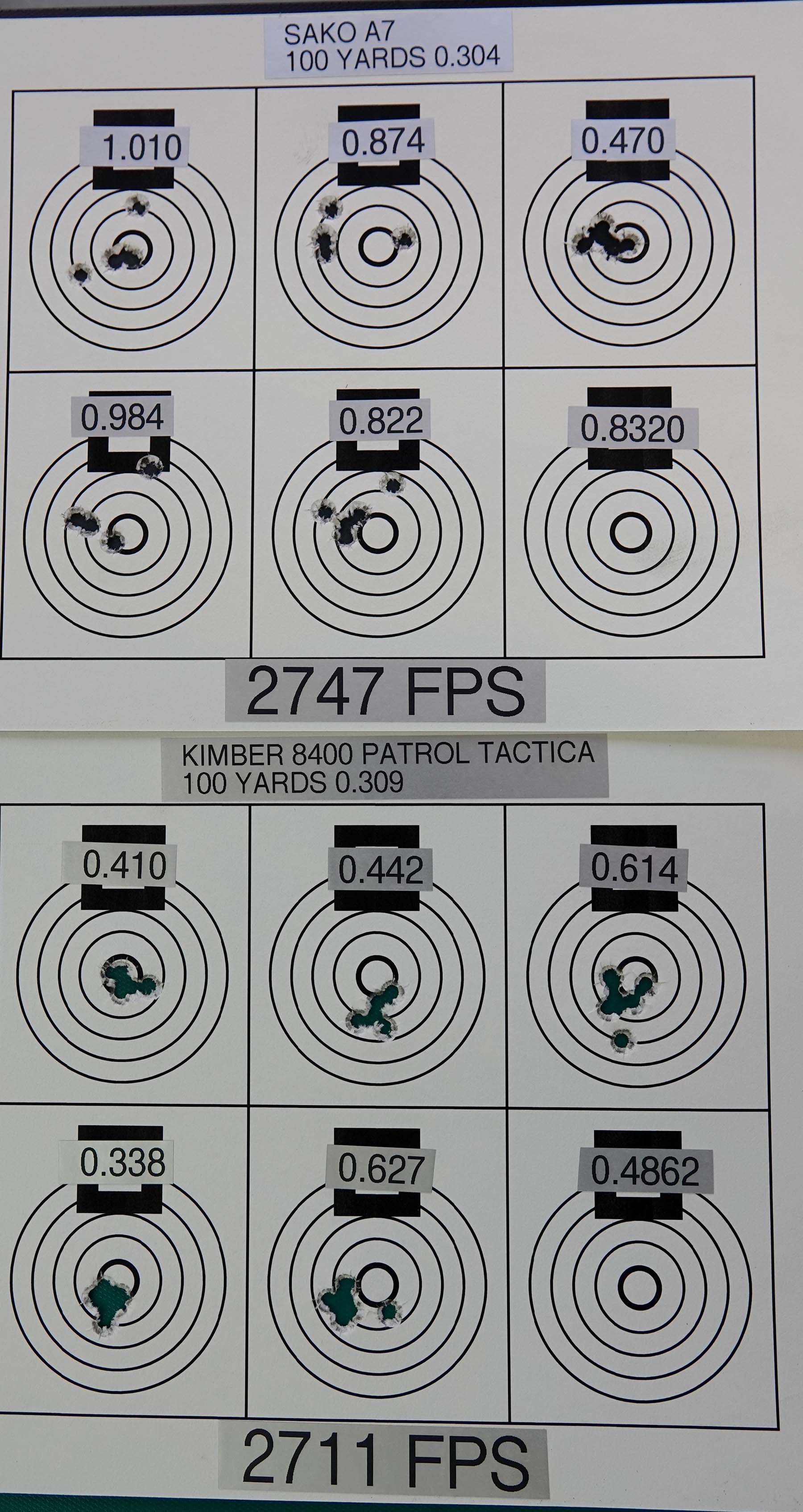 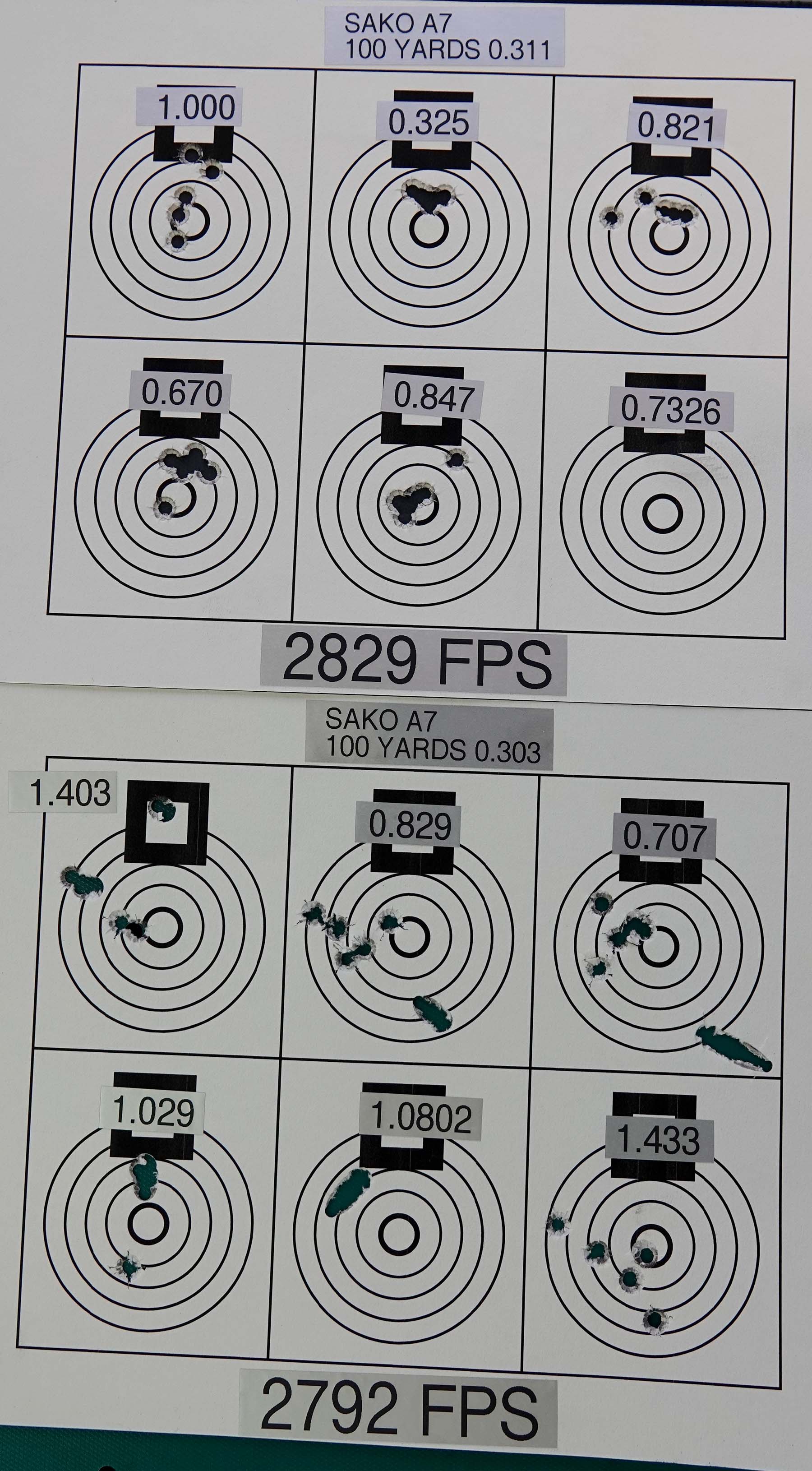 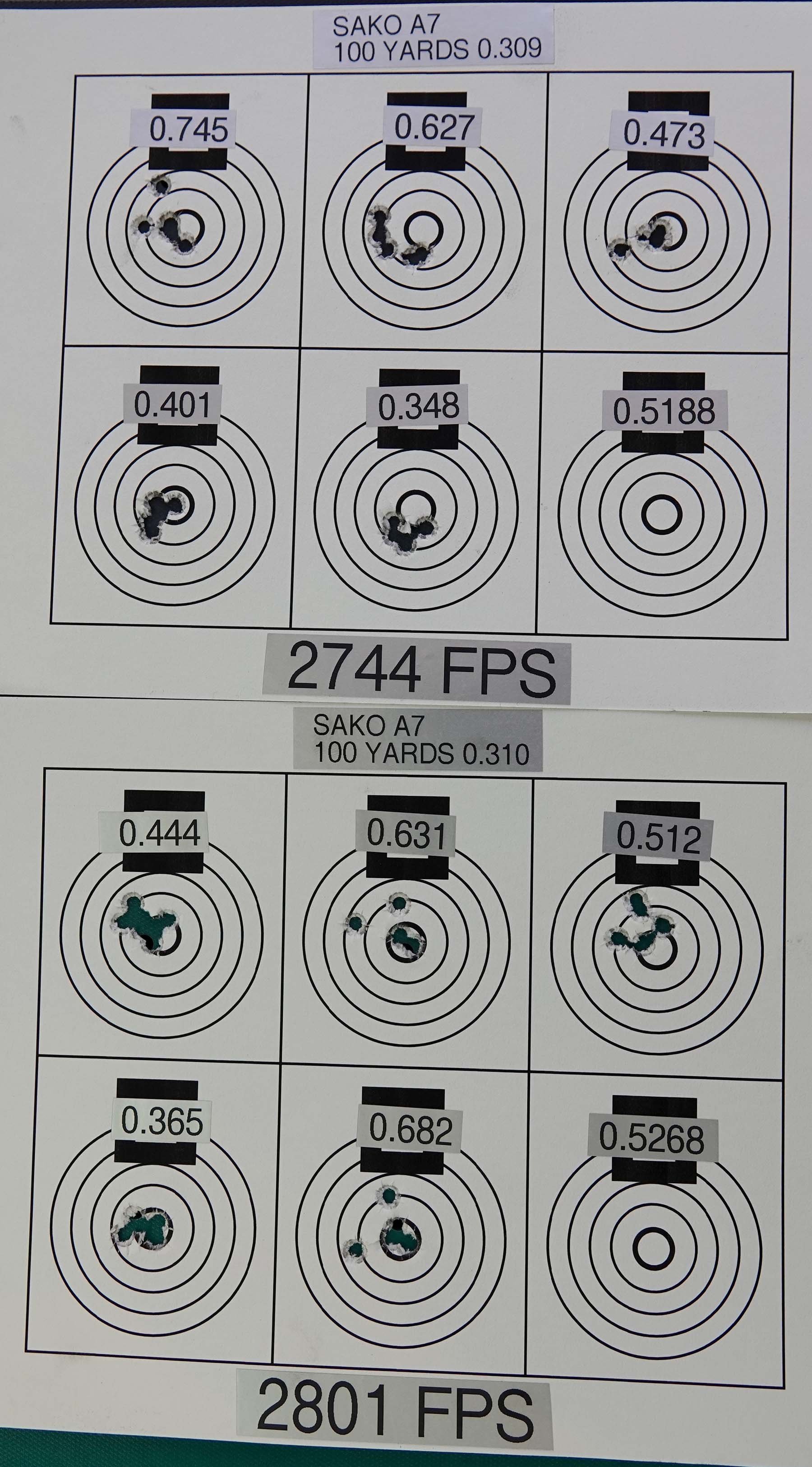 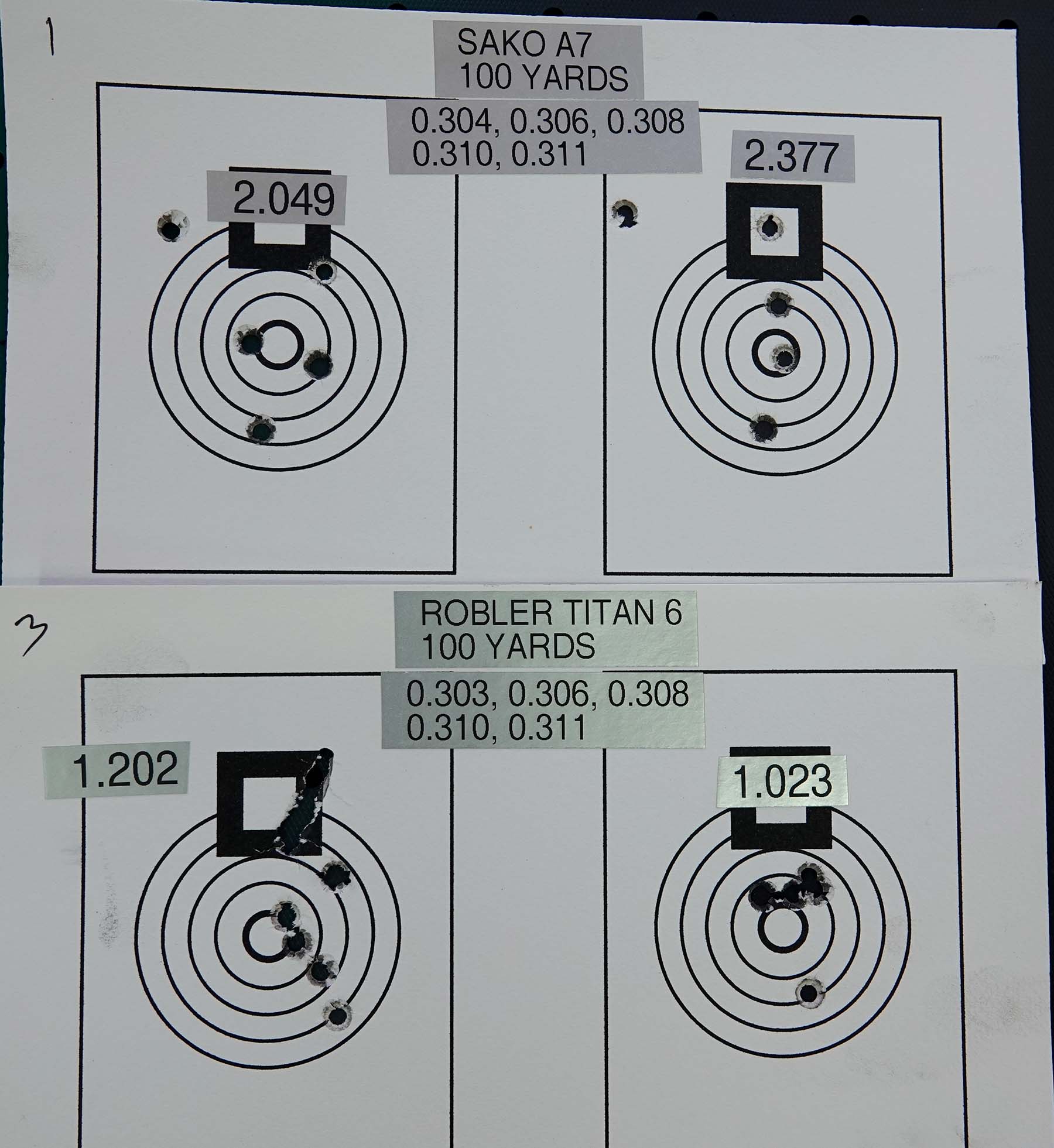 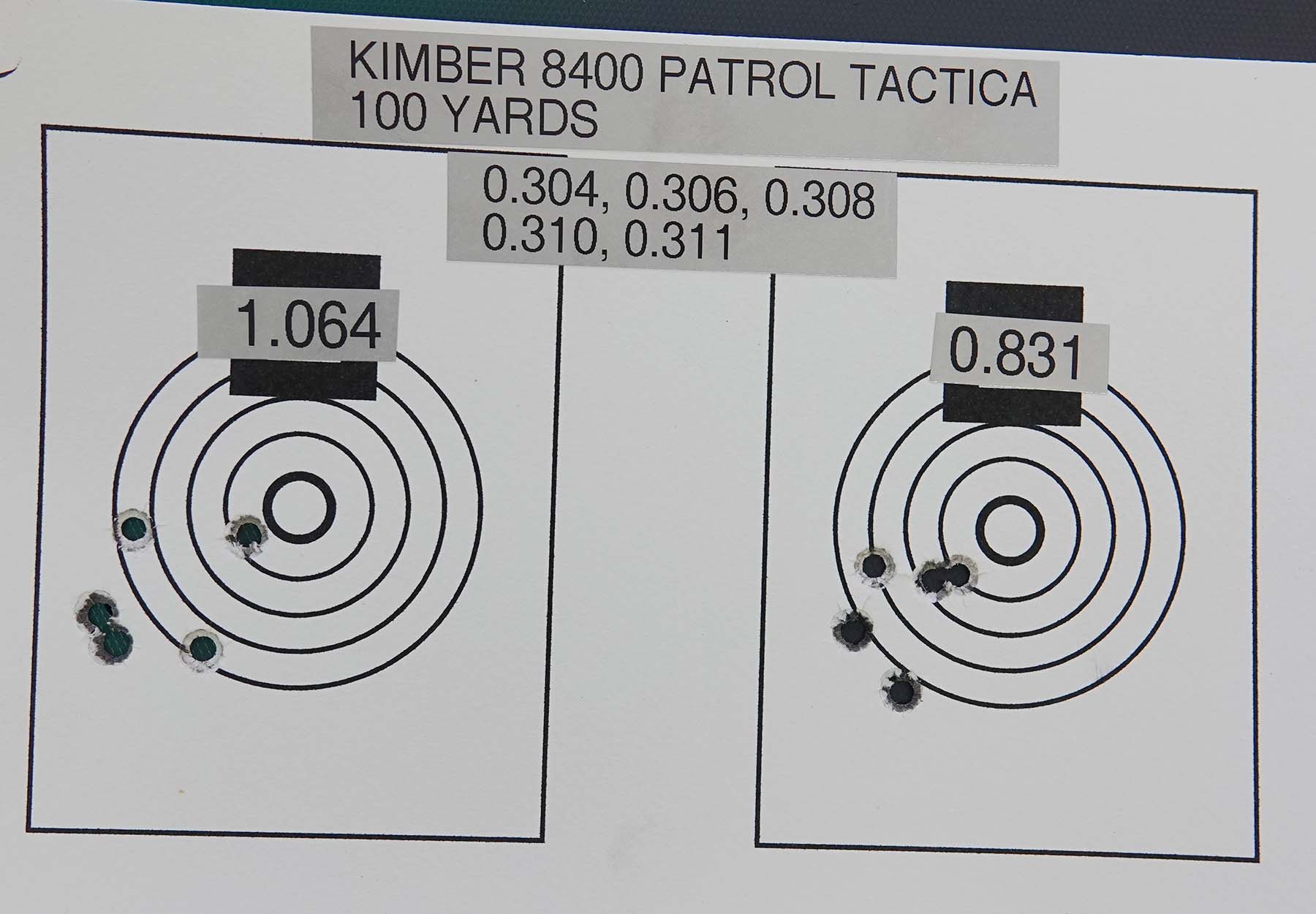 | |||
|
| Administrator |
Brass bullets are not shooting as well. | |||
|
| one of us |
Undersized brass bullets will be more likely to skid on the rifling, not as "grabby" as copper, eh ? | |||
|
| One of Us |
Saeed. Well done. I am very curious as to which grade of copper you are using. You already probably mentioned it. I must have missed it. Have you done any annealing? Seems like dead soft grade rod would give the best seal on the rifling and might be difficult to source and therefore annealing of 1/8 hard grade might be necessary. Much appreciated. Life itself is a gift. Live it up if you can. | |||
|
| One of Us |
Please keep us posted Saeed. Life itself is a gift. Live it up if you can. | |||
|
| Powered by Social Strata |
| Please Wait. Your request is being processed... |
|
 The Accurate Reloading Forums
The Accurate Reloading Forums  THE ACCURATE RELOADING.COM FORUMS
THE ACCURATE RELOADING.COM FORUMS  Rifles
Rifles  Medium Bore Rifles
Medium Bore Rifles  I Have Started Testing Different Size Bullets In The 308 Winchester
I Have Started Testing Different Size Bullets In The 308 Winchester

Visit our on-line store for AR Memorabilia

